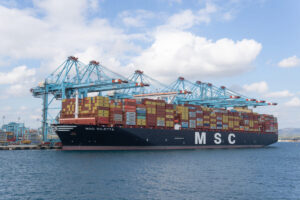The US Financial Accounting Standards Board (FASB) has issued a lease accounting standard as part of an International Financial Reporting Standard (IFRS) that shipping advisor Moore Stephens has alerted shippers to be aware of.
Moore Stephens have stated that shipping and offshore maritime sectors must be aware that the FASB and IFRS standards were anticipated to be identical, but are instead two standards which are similar but contain significant differences.
The International Accounting Standards Board (IASB) has adopted a single lease accounting model whereas, FASB has retained a dual accounting model.
The FASB standards update, applies to all companies which follow US accounting standards. As with the IFRS 16, leases are currently treated as off-balance-sheet operating leases will be appearing on lessee companies’ balance sheets.
Although net assets may not be significantly affected, gross assets and gross liabilities are predicted to increase for companies which currently have major leasing arrangements treated as operating leases.
Where a lessee is party to a capital or finance lease, the accounting treatment shall remain unchanged, as it is under IFRS 16.
However, where a lease was previously an operating lease, then under the new US standard the lessee will; record a right-of use-asset; measure the right-of-use asset and lease liabilities; recognise a single lease expense; and classify cash payments in the statement of cash flows within operating activities.
Michael, J. Halkias, Principal of MSPC New York said, “On inception of a lease, the balance sheet entries prepared under the two new standards will usually be similar, but would then diverge as the basis of charging expense differs.
“Expenses under the US standard will remain flatter than under IFRS and may be unchanged from current standards. There are also differences of detail dealing with matters such as subleases, and sale and leaseback transactions.”
Michael Simms, Partner at Moore Stephens London said, “Neither the FASB nor the IASB have felt the need to significantly change their lessor accounting models, and have largely carried forward their requirements into the new standards.
“But, just as there were some differences between the two models before, those differences remain.
“The new standards have been a long time coming, and it will be a few years yet before the first financial statements are published which have to comply with them.
“Nevertheless, many companies in the shipping and offshore maritime sectors will need to consider the effect on their financial statements quite soon. Some will see major changes to their balance sheets, and a certain amount of change to their reported profits.
“Companies will also need to consider the effect that the changes will have on compliance with the terms of financing which includes covenants. And where breaches of covenant are likely, or reasonably possible, talking to lenders before the change hits the accounts will be crucial.”
Fact File: Moore Stephens LLP is noted for a number of industry specialisations and is acknowledged as a shipping, offshore maritime and insurance adviser. Moore Stephens LLP is a member firm of Moore Stephens International Limited. www.moorestephens.co.uk








